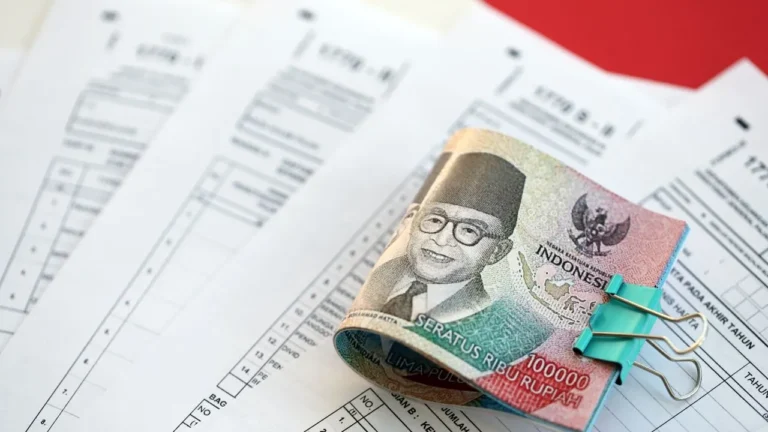Table of Contents
ToggleThe allure of Bali’s emerald rice paddies, turquoise waters, and vibrant culture is undeniable. But beyond the postcard scenery lies a complex legal landscape, especially when it comes to contracts and agreements in Bali. Whether you’re purchasing your dream villa, launching a business venture, or securing employment, understanding the nuances of Balinese contracts is crucial for protecting your interests and ensuring a smooth experience.
This comprehensive guide delves into the intricacies of contract navigation in Bali, offering practical tips for drafting, reviewing, and understanding agreements across three key areas: property purchases, business partnerships, and employment contracts.
Legal Steps for Purchase Property in Bali

Bali’s property market offers diverse options, from charming traditional houses to luxurious beachfront villas. However, purchasing property comes with a unique set of legal considerations. Here are some key points to remember:
Land Ownership
Foreigners can own or lease land in Bali. You can ensure that your contract explicitly mentions the Hak Pakai and its duration.
Nominee Arrangements
While frowned upon by some, nominee agreements allow foreigners to indirectly own land through a local trustee. These agreements, however, require meticulous drafting and legal expertise to avoid disputes as Indonesia does not recognise those agreements.
Due Diligence
Don’t be swayed by idyllic views. Thoroughly research the property’s legal status, zoning regulations, and potential encumbrances. Engage a reputable lawyer to conduct due diligence and review the sales agreement.
Contract Clauses
Pay close attention to clauses regarding payments, completion timelines, warranties, and dispute resolution mechanisms. Ensure your contract is clear, concise, and translated into English if necessary.
Case Study: Securing Your Dream Villa in Bali
John, an American entrepreneur, fell in love with a traditional Balinese villa overlooking a rice paddy. Before signing the purchase agreement, John followed these steps:
- He hired a lawyer specializing in Balinese property law to conduct due diligence.
- The lawyer reviewed the land title, zoning regulations, and any potential encumbrances.
- John negotiated the contract clauses, ensuring clarity on payment terms, completion timelines, and warranty coverage.
- He had the contract translated into English for his complete understanding.
By taking these precautions, John secured his dream villa with confidence and avoided potential legal pitfalls.
Get professional legal advice for Indonesia
Indonesia’s legal system is complicated, with its many regulations, licences, and special rules for foreigners. Don’t make the mistake of trying to navigate it alone, and get the help of experienced consultants instead.
At ILA, we can help you with intellectual property, corporate law, drafting, reviewing and managing legal documents, navigating commercial transactions and much more.
You’re not alone. Reach out today to schedule a free consultation or read more about our legal service.
Legal Key Points for Business Partnerships in Bali
Bali’s burgeoning entrepreneurial ecosystem offers exciting opportunities for collaboration. However, before shaking hands in a partnership, ensure you have a solid legal foundation. Here are some considerations:
Partnership Structure
Decide on the most suitable structure for your venture, such as a joint venture, limited liability company (LLC), or partnership agreement. Each structure has different legal implications and tax consequences.
Memorandum of Understanding (MOU)
While not legally binding, an MOU can establish the core principles and intentions of your partnership before finalizing a formal agreement.
Shareholder Agreements
For LLCs, a shareholder agreement outlines ownership percentages, voting rights, profit-sharing, and dispute resolution mechanisms.
Intellectual Property (IP)
Clearly define ownership and usage rights for any intellectual property developed within the partnership, including trademarks, patents, and copyrights.
Example: Drafting a Watertight Shareholder Agreement
Emma and Liam, two friends, decided to open a yoga retreat in Bali. They created a detailed shareholder agreement that included:
- Defined ownership percentages and voting rights for each partner.
- Established clear profit-sharing formulas based on investment and contribution.
- Outlined dispute resolution procedures for any potential disagreements.
- Addressed intellectual property rights for the retreat’s branding and marketing materials.
This agreement provided Emma and Liam with a secure framework for their partnership, promoting transparency and preventing future conflicts.
Understanding Employment Contracts in Bali 
Whether you’re hiring local talent or working remotely in Bali, a well-defined employment contracts is essential. Here are some key points to remember:
Contract Language
Ensure the contract is in English or a language you understand and make it bilingual to binding the Indonesian law.
Job Description
Clearly define the employee’s role, responsibilities, and performance expectations.
Compensation and Benefits
Specify salary, bonuses, overtime pay, leave entitlements, and other benefits. Research and adhere to Balinese labor laws regarding minimum wage, working hours, and mandatory benefits.
Termination Clauses
Clearly outline the grounds and processes for termination of employment for both the employer and employee. Understand the concept of “mutual termination” and its implications for severance pay.
Dispute Resolution
Establish a mechanism for resolving any disputes that may arise. Consider mediation or arbitration as alternatives to lengthy and expensive litigation.
Example: Protecting your Interests with a Fair Contract
Sarah, an Australian digital nomad, secured a freelance writing job with a local Bali-based tourism company. Before starting, she negotiated and signed a contract that included:
- A detailed job description outlining her specific writing tasks and deliverables.
- Clear payment terms with deadlines and specified currencies.
- Entitlement to paid leave is based on Balinese labor laws.
- A dispute resolution clause specifies a mediation process for any disagreements.
By having a well-drafted contract, Sarah protected her rights, ensured fair compensation, and established a clear working relationship with her employer.
Important Tips for Managing Contracts and Agreements in Bali
Seek Professional Help
Engaging a reputable lawyer and legal like ILA familiar with Balinese law is crucial for navigating the complexities of contracts. Their expertise can save you time, money, and potential legal headaches.
Cultural Sensitivity
Be mindful of cultural differences and communication styles. Directness may be perceived as disrespectful, and building trust takes time. Practice patience and open communication.
Don’t Rush
Thoroughly review and understand the contract before signing. Don’t be pressured into rushed decisions. Take your time to clarify any doubts or concerns with your counterpart.
Maintain Open Communication
Clear and consistent communication with your counterparts is essential for building trust and resolving any potential issues. Be proactive in raising questions and addressing concerns promptly.
In Summary
Navigating contracts and agreements in Bali may seem daunting, but with careful preparation, informed decisions, and professional guidance, you can ensure a smooth and successful journey. By applying the tips and resources provided in this guide, you can protect your interests, build strong relationships, and confidently embark on your investment, business venture, or employment opportunity in Bali.
Contact us if you need assistance to draft your lease agreement in Bali or any type of contracts.























